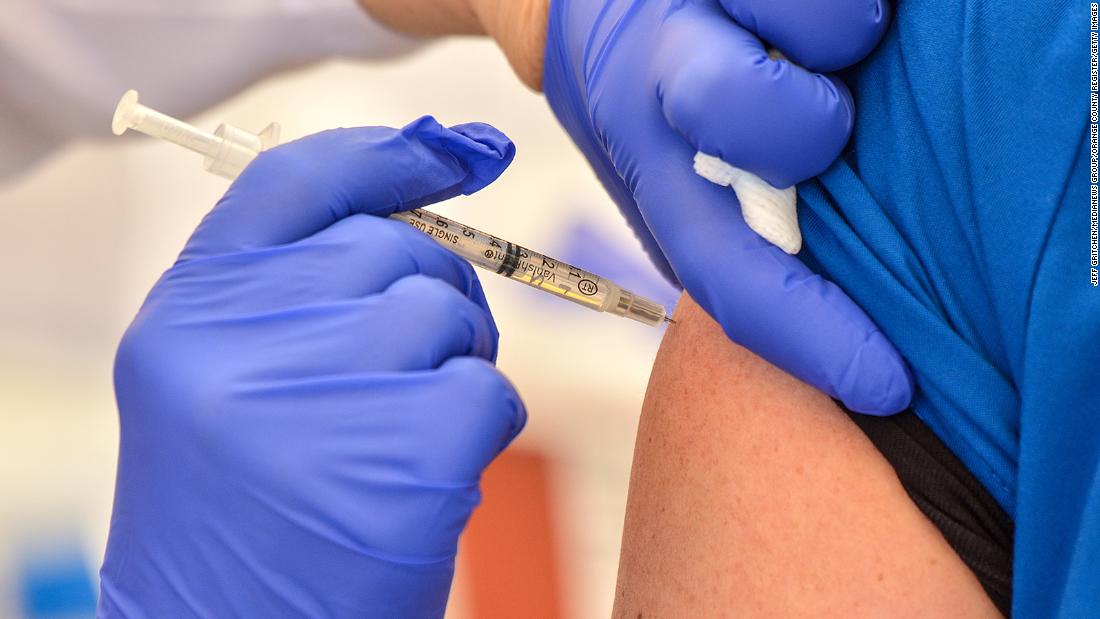
As health care workers administer Moderna and Pfizer vaccines, the experts have more information about them than any other in history, Dr. Jerome Adams said at a news conference Saturday.
"This vaccine is almost 100% certain to prevent you or your loved one from getting severe disease," Adams said. "It is the way we end this pandemic."
Both vaccine candidates received emergency use authorizations (EUA) from the US Food and Drug Administration and a recommendation from the US Centers for Disease Control and Prevention. But the race to produce and distribute the vaccine has bred some public skepticism over vaccines against the virus that has infected more than 17.6 million people in the United States and killed 316,176, according to data from Johns Hopkins University.
Officials have begun distributing vaccines to health care workers and long-term care residents. But most Americans will likely not be immunized until 2021, when more doses can be produced and distributed. The US is on track to have 20 million vaccine doses by the end of December, 50 million by the end of January and 100 million by the end of February, Adams said.
Though the process of getting the two necessary doses to Americans is a daunting task, Adams said he is more concerned about vaccine confidence than he is about vaccine supply.
"It's okay to have questions. It's okay to ask questions," he said. "What is not okay is to let misinformation or mistrust cause you to make a decision which is going to be bad for your health, or your family's health, or your community's health."
5 healthcare workers in Alaska have adverse reactions
As vaccines make their way to the public, some have reported adverse reactions.
Two more health care workers at Providence Health Alaska suffered adverse reactions to the coronavirus vaccine, a spokesman told CNN Saturday. In total, five have had adverse reactions across the state.
Their reactions were mild and non-threatening, Mikal Canfield said.
Adverse reactions among four employees caused a hospital in a suburb of Chicago to temporarily stop its Covid-19 vaccination program for frontline workers. Their symptoms included tingling and elevated heart rate shortly after receiving the vaccine, Advocate Aurora Health said in a statement obtained by CNN affiliate WLS.
The health care company noted these four workers represented "fewer than 0.15% of the approximately 3,000 who have so far received vaccinations across Advocate Aurora Health" and that the pause allowed "time to better understand" the cause of the reactions. The vaccination continued, however, in eight other locations across Illinois and Wisconsin.
The health care system said the program will resume on Sunday with an increase of 30 minutes to the post-vaccine evaluation period out of an abundance of caution.
Adams said allergic reactions to coronavirus vaccines are "not abnormal or unexpected."
"The system is working," Adams said during a news conference hosted by Ohio Gov. Mike DeWine. "We are recognizing and catching these very, very rare side effects."
'We need LA to turn into a ghost town again'
With unparalleled rates of spread, California has reinstated restrictions to mitigate coronavirus spread.
The current spike of Covid-19 in California "is, by far, the worst that it's been in the past 9 months," Dr. Thomas Yadegar, director of ICU at Providence Cedars-Sinai Tarzana Medical Center in Los Angeles, said during an interview on "CNN Newsroom."
The state has continuously set daily record highs in hospitalizations and deaths and ICU bed capacity has plunged nearly zero in many parts of the state.
"Right now, we need LA to turn into a ghost town again. That's what we need. So that we can try to save as many people and heal as many souls," Yadegar said.
"No matter how hard we try to get patients better, to stabilize them, and hopefully we get patients home, it seems like there's another four patients who are sicker waiting for that same bed," Yadegar told CNN's Paul Vercammen.
Yadegar added that patients are coming to his hospital "much sicker than the past four months."
He thinks many people are waiting too long to come into already overwhelmed hospitals, he said.
"I had a patient this past week who waited too long. And I asked them, 'why are you not coming in earlier?' And it broke my heart but what he said was ... 'I didn't want to take someone else's bed. I didn't want to take someone else's bed. I thought that someone was going to be sicker and needed it more,'" Yadegar said
"general" - Google News
December 20, 2020 at 06:31PM
https://ift.tt/3h5IasC
Experts know more about the coronavirus vaccines than any other in history, surgeon general says - CNN
"general" - Google News
https://ift.tt/2YopsF9
https://ift.tt/3faOei7
Bagikan Berita Ini














0 Response to "Experts know more about the coronavirus vaccines than any other in history, surgeon general says - CNN"
Post a Comment